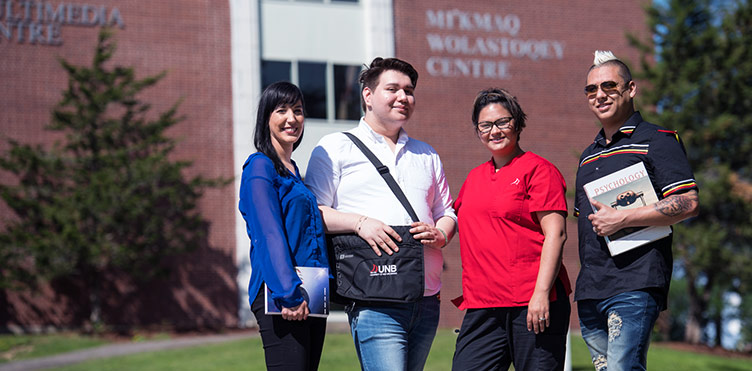
The MWC’s eight month WWS program seeks to support the transition of Indigenous students into full-time studies in various departments and faculties at UNB. With this program, our goal is to strengthen Indigenous students in their languages, cultures, and traditions, to empower Indigenous students to succeed in university, and to form cohorts of Indigenous students who can journey through undergraduate programs together.
Wocopsqoltine Weci Spiqiyahtuweq (Wolastoqey) Weli’kwejik Elaqsultiek (Mi’kmaq) translates into English as “growing from the roots, soaring together.” Replacing the former “Bridging Year,” this name, unveiled in 2022, was chosen by the MWC Council of Elders. It reflects the nature of our programming and our commitment to nurturing and empowering Indigenous students.
All WWS courses are designed to support the transition of Indigenous students into undergraduate degree programs at UNB, rooting them in Wabanaki history, languages, and traditions, and empowering them with the information they need to be successful in university. In the classroom, students will learn from a community of committed Instructors and tutors; outside of the classroom, students are encouraged to utilize the supports and participate in programming provided by MWC faculty and staff.
First term WWS courses focus on the prerequisites that students need for admission into their program of choice. In the second term, WWS courses count toward students' university degree, thus reducing their first-year course load.
The Wabanaki Bachelor of Education program focuses on Wabanaki languages, cultures, and worldviews through involvement of Indigenous Elders and Knowledge keepers. Students complete the entire degree from home with exception of land-based gatherings. Mi’kmaq and Wolastoqey language certificates are embedded within the degree; the program includes four language courses, and half of the practicum involves teaching language in a community school. For more information, please contact the MWC at mwc@unb.ca.